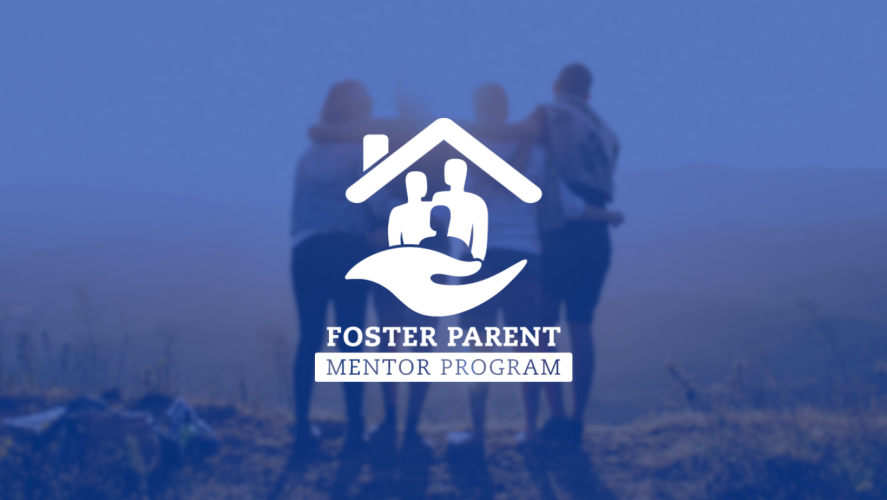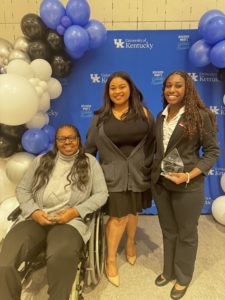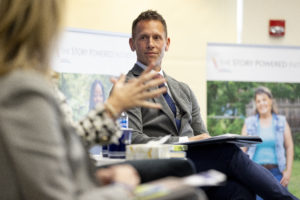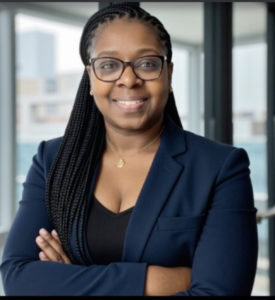LEXINGTON, Ky. – The Foster Parent Mentor Program (FPMP) at the University of Kentucky College of Social Work specializes in one-on-one, intensive coaching relationships, which provide newly approved foster parents with emotional encouragement, skill reinforcement, and parenting strategies.
During National Mentor Month in January, mentor Stephanie Spires, along with her mentee Rebecca Ashby, took the time to answer a Q&A about their experiences in the FPMP.
CoSW: How long have you been working with your mentor and what has been the most beneficial part of working with her?
RA: I have been working with Stephanie Spires as my mentor for three years. The most beneficial aspect of this has been that Stephanie has had so much experience and many years working as a foster parent in many different situations, and she is able to share wisdom from those with me. Knowing that I can message her anytime to ask a question has been comforting because I do not have many friends or family who have been foster parents. Fostering, DCBS, and the court system is a new world that brand new foster parents get to navigate, and having a mentor who has waded these waters before is enormously helpful. I did not feel alone in this process, or my feelings about it.
CoSW: How did you become a mentor in the Foster Parent Mentor Program and what do you enjoy most about it?
SS: Despite all the training, there are so many questions for new foster families. My mentor, Francie Graven, was amazing when I first became a foster parent and answered all my questions, encouraged me, and even provided our family respite. I wanted to support other new foster families like my mentor supported me.
CoSW: What is one piece of advice that you have learned that you would share with new foster parents?
RA: I would say to do everything you can to communicate and build relationships with your foster child’s biological family. Be vulnerable, sincere, and open. You can partner with them or help them just as much as you help their child. Be open-minded and flexible, and try to understand what the family’s history, experiences, strengths, and struggles are. Document the little things that your foster child does and the big milestones and share those. Communicate the day-to-day routines and what happens at all appointments they are unable to attend. Things will be easier for the parents, the child, and you if you are able to forge a bond. I tried to share little moments of things my child did that would make them feel close to them.
CoSW: What is the biggest piece of advice you give to new foster parents?
SS: I don’t know if it is advice but I typically encourage new foster parents to do respite for different children to learn more about their families’ strengths and weaknesses. Additionally, I reiterate the importance of setting boundaries and self-care.
CoSW: In what ways has your mentor helped you in your fostering journey?
RA: Stephanie has helped me by answering questions I have had about court processes and understanding expectations for how the court, in connection with DCBS, functions. Although you learn a bit about this in the fostering classes, how it works, like nearly everything, is something you learn from experience. I know that Stephanie is an experienced parent as well, so I have been able to ask for her advice on aspects of parenting. Just knowing that she is available for me to reach out to is a comfort. Fostering can feel lonely because it is a unique and uncertain journey. Having Stephanie as a mentor has given me a connection and having that connection has offered me peace of mind.
CoSW: How do you approach helping your mentees with issues they are facing as new foster parents?
SS: I try to just be accessible. I check in frequently, but really, I want them to contact me when they have questions, needs, etc. regardless of the time.
CoSW: How did your mentor prepare you for what to expect at placement?
RA: My mentor was present at some of my training classes and was able to offer insight from the start of what to expect when beginning the fostering journey. She shared some of her diverse experiences and I learned that every case is different. This helped me have an open mind and to expect the unexpected from the start. You have to know what you can control in a situation and what you cannot control. You can control showing love, becoming knowledgeable, learning to advocate, and working tirelessly on behalf of a child. You cannot control what happens in the court, with the first family, the workers, or with any part of ‘the system.’ Stephanie, along with my trainers, stressed valuing relationships with the child’s first family, and this advice was enormously helpful. Before fostering, I am not sure I understood this. After taking the classes and talking with Stephanie, I viewed my work as a foster parent as not just relationship-building with the child but with their first family. We are trying to support families as a whole. This perspective was enormously helpful, and I think the mindset of supporting the first family as a way of also helping my child as much as I could in my role made me a successful foster parent.
CoSW: Why is having a mentor as a new foster parent so important?
SS: A mentor is important because it gives the foster parent someone in their corner. The mentor can both mentor from experience but can also be objective when discussing a potential or current placement.
CoSW: What has been the most rewarding part of being a foster parent so far?
RA: Building a supportive community around my (now adopted) child was the most rewarding part of being a foster parent. Every person in my child’s life is an important player in keeping them safe, helping them heal, working through obstacles, and becoming the best person they can be. As the foster parent, I felt I was building and maintaining a knowledgeable and loving circle for them. Seeing that I could coordinate efforts to contribute to my child’s development by involving a community of people was rewarding. To watch others love, teach, and care for my child, and knowing that my child could feel that love and support, was a great feeling. Being an advocate for a child with extra needs is exhausting at times and it is a 24/7 job, but I have found nothing more fulfilling, either. You learn the true meaning of “it takes a village to raise a child.” Therapists, doctors, social workers, family, and friends all contribute. To get to be the one to seek resources and advocate for my child, as well as help them form and maintain positive relationships, has been a humbling honor.
CoSW: What is the most rewarding part of being a foster parent mentor?
SS: The most rewarding thing is watching these families grow and watching my mentees grow. Many of my mentees have gone on to become adoptive parents. I love seeing their children thrive and grow. Additionally, many of my mentees have gone to become strong public advocates for children and/or mentors and educators for other foster families.






